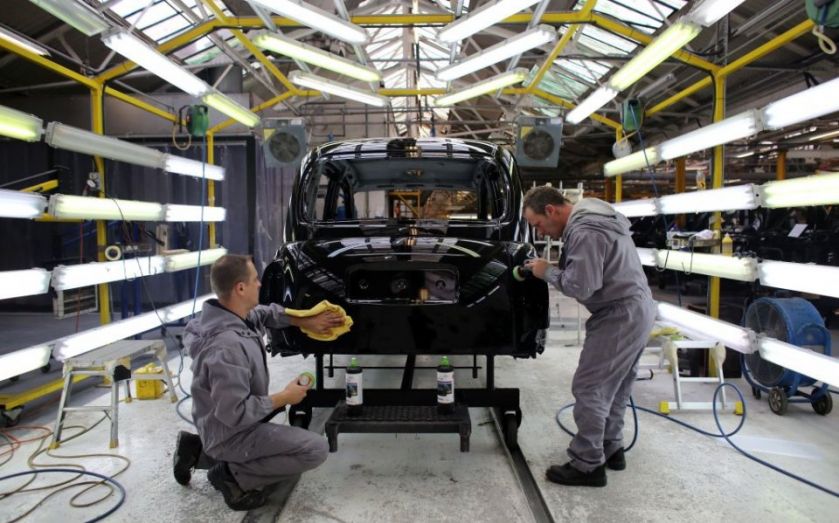PMI: UK manufacturing gets off to a good 2015 as costs drop while orders grow

UK manufacturing has had a good start to the year, with output and new orders both shrugging off the slowdown at the end of last year.
Figures out this morning show that the UK's manufacturing PMI rose to 53 in January, up from 52.7 in December, which was itself revised up from 52.5.
Headline PMI has been above the neutral 50 mark – which demonstrates growth – since April 2013.
Manufacturing output expanded for the 23rd consecutive month, thanks to a further increase in incoming new orders, primarily from the domestic market.
Solid output growth was registered at both intermediate and investment goods producers. However, the rate of growth in the consumer goods output ground to a near standstill pace.
There was also a modest increase in new business from overseas, representing the first meaningful improvement in new export order volumes registered for five months.
Companies reported increased demand from France, Germany, Japan, the Middle East, Poland and the US.
All this means good things for jobs; staffing levels have risen for the 21st successive month, although the rate has eased back to a three-month low.
The rate of purchase price deflation accelerated sharply to its steepest since 2009, with nearly a third of companies reporting a decline in input costs owing to the slump in the oil price.
Rob Dobson, senior economist at Markit, which compiles the survey, said: “The big mover in the latest survey was the input prices index, as the recent slump in oil prices saw manufacturers’ purchasing costs fall at one of the fastest rates seen over the past 16 years.
“Selling prices also fell for only the second time in five years. Waning inflationary pressures will provide the Bank of England with leeway to push back the first rate increase to late-2015 at the earliest.”
David Noble, group chief executive at the Chartered Institute of Procurement & Supply, said: “Manufacturers were picking up the pace a little as the sector reported a marginal increase in activity driven by domestic demand which continued to show signs of life.
“Though the overall index showed a modest increase, it may be enough to allay fears of an overall slowdown in the UK economy as the Eurozone continues to experience problems.”
He added: “The world’s eyes will be focused on reactions to Eurozone deflation and a response to the UK’s disinflationary pressures and how all this will be played out for manufacturing in the months ahead.”